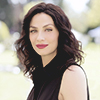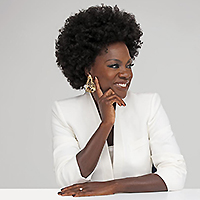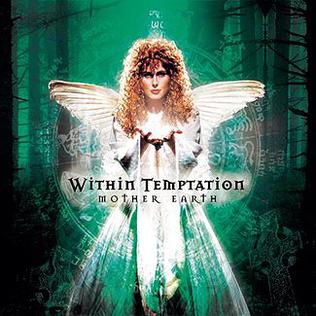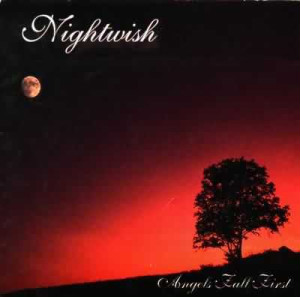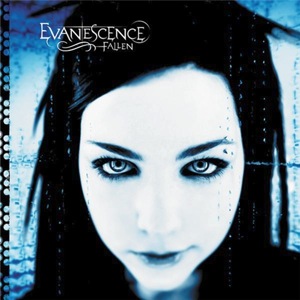
“They felt that they had too many women” – Star Trek actress Gates McFadden recalls being fired from the show
Dan Barrett
October 2, 2018
This past week marked 30 years since Star Trek: The Next Generation first aired on television. It wasn’t the first time that a beloved TV show had been revived, but it was certainly one of the most anticipated. By the time the series launched on 28 September 1987, there had already been four big-screen feature films continuing on from the cult-hit 60s sci-fi series.
For actress Gates McFadden, who was cast in the role of the ships doctor, it was a role that would change the direction of her career. Previously, McFadden had worked as a choreographer, including having done some work on Jim Henson productions Muppets Take Manhattan and Labyrinth. But now she was stepping into a role that would come to an unexpected, abrupt end after just a year on the show.
Fans were shocked to find her character, Dr Beverly Crusher, gone from the series in its second season. McFadden had raised concerns about sexist material on the show and was pushed out by one of the male producers on the show. Her replacement, the great TV actress Diana Muldaur, only lasted one season herself, with McFadden brought back onto the show.
Fans look back at this period of the show as rocky, with the show struggling to properly define itself and the way it made use of its female cast. With the return of Gates McFadden, the starship Enterprise was ready to blast off and become a cult favourite in its own right.
McFadden, currently touring Australia as a guest of Oz Comic-Con, spoke with SBS.
SBS: Let’s start with The Hunt For Red October – you’re in the film for a brief scene as Jack Ryan’s wife Caroline, but didn’t return for the sequels. Were you lost in the transition between Alec Baldwin to Harrison Ford?
GATES: I did. That’s exactly what happened. Everybody knew that the second movie was going to be big. It was going to be Alec and I was going to play his wife. Alec… I think it’s because he asked for too much money. At that time the studio said “No. We’ll show him. We’ll recast”. It was during that time in his life, not that I really have insight on it, but he was a little more combative about certain things. It blew it. It’s too bad, because boy that would have been fantastic.
Regarding the casting for Star Trek: The Next Generation. When you joined the cast, were you concerned at all about being typecast in the way that a lot of the Original Series cast felt trapped by their roles?
Not really – I was such an innocent, a neophyte. I didn’t understand the first Star Trek. I had never watched an episode. I didn’t understand what it was about – I kind of thought it was supposed to be a bit campy. I was doing so much theatre and into my own creative projects. I was afraid of TV and what it was. I was also happy living in New York City at the time. But boy am I glad I finally said yes and took the role because it has changed my life. I don’t just mean financially. It took me a long time, up until only about ten years ago that I started to really understand the impact it’s had on my life. Our fans, I used to be terrified of. But now I am very impressed by most of them. They are so smart. They are people who believe in the future. They think that there’s hope. They aren’t afraid of technology. They embrace it and see how the technology that we used is coming to fruition. They’re doing a tricorder right now. They’re making one, which is awesome.
We really needed female role models, we needed more role models for people of colour. And the Star Trek world started this very tolerant world.
You said your perception of the fans changed – when did that happen for you? Was it while you were still making the show?
I was blown away when, in the second season, how many letters I got from fans. Thousands of letters and people who said they loved the character and loved me. I had been in conflict with one of the male writer-producers about certain things I thought were sexist. What I’ve heard is that he said “Either she goes or I go”. I was shocked that they let me go, because I knew my character was really popular. But he was going to be writing more and more and didn’t want to have to deal with me. What was great was they got rid of him and asked me to come back. So, for me, that was terrific. I know that the fans had something to do with it. They [the producers] would never admit that, but I know it’s true. I was surprised at how powerful the fans felt about things and vocal about it. It was very moving to me when I came back. I also then had a child, so I was preoccupied with all of that. They were busy years. I would say in the last ten years is when I’ve seen first-hand when I have a family of generations – the grandparents, grand-kids, people all watch the show together.
Were you apprehensive coming back to the show for its third season?
I wasn’t fully told what really happened. I didn’t really understand. I know Patrick [Stewart] had wanted me back because he was the first person to call me and ask if I’d consider it. I was told it was still going to be the love interest to Picard, but I felt they really pushed away from that when I came back. In the beginning they had a lot of scripts for [replacement character] Dr Pulaski. I could see they were taking Pulaski scripts they had and tried to make it Crusher.
It’s interesting now re-watching the first season of Star Trek: The Next Generation, knowing that you were moved off the show for the second season, it’s hard to believe that happened immediately after they killed off Denise Crosby’s character Tasha Yar. You wouldn’t see them remove two female leads on a show today like that.
They felt that they had too many women. My agent said that I was the third most popular character on the show at the time. I felt pretty confident. I understand why Denise wanted to leave. They didn’t use her. Our characters never had one scene together. I never had a scene with just Troi. The women didn’t count enough to have scenes together, which has changed now. Look at Star Trek: Discovery. Discovery has all these strong female characters. It’s fantastic.
Have you watched Discovery? Are you inclined to watch the follow-up shows?
I’ve watched a couple. I’m interested. The thing that’s tough is that when you’ve done a space show, you’re not really interested in watching a space show. It kind of makes you think of work. [Laughs]. I loved what I saw. I think the cast is extraordinary.
What about The Orville – it’s an homage to Star Trek that has featured a lot of guest actors from Star Trek shows. Have they spoken to you about a cameo?
They haven’t – it would be really fun. I think I’ve seen one episode when it first came out. It seems fun. I think how lovely it is that Seth cares so much about that show and having something positive.
With ‘nerd culture’ now the mainstream culture, is there part of you that wishes Star Trek was part of the mainstream culture back when you were on the show?
I don’t think of it as ‘why couldn’t I have been…” It would have been financially much better to be in one, that’s for sure. We were the first syndicated show, so everyone thinks we got all these wild residuals. But I got higher residuals from an episode of The Cosby Show than I ever did on any episode of Star Trek. But I think it’s fascinating how much our culture needs cosplay and heroic models. I think it speaks very much to how difficult it is to process all of the things we have in our daily lives. We have so much information and technology to deal with.
My life has never gone as I expected it to go. I didn’t expect to do Labyrinth, I didn’t expect to do a lot of things. I didn’t expect to build a theater in LA. Things just sort of happened – dropped in my lap. I’m learning to be very, very grateful for it.





